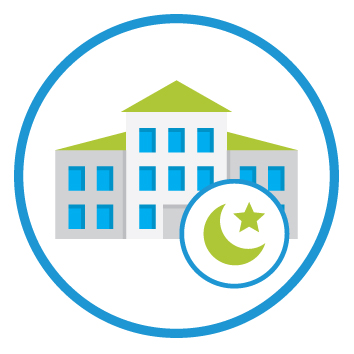
It's been 6 years since the war began in Syria, and so many people have lost their homes, loved ones and lives. Many terms are used to describe these people arriving on the shores of Europe, like refugees and Asylum seekers.
Almost two years ago, Maisam Madi, began volunteering with refugees arriving in Greece. She had just finished her residency as a psychologist and her work with us at the parents' clinic at Schneider Children's Medical center, when she traveled to Greece to try and help with the refugee crisis. After a few months in Greece, she spent a year in Belgium training teams from Wingerdbloei in using New Authority in their work (some of her professional ideas are also published at the resource section of N.A.N.I.). Maisam is now back again in Greece, trying again make a contribution with her time and skills to help refugees. Here is the text Maisam sent us while she is being present with the people who have been displaced - displaced from their homes, neighborhoods and cities; but more importantly, those people who have been displaced from their selves, their hopes and their dreams.
|
My involvement in the refugee issue began a year and half ago. But in actuality, I was following the crisis long before that. The mere idea of a functioning country in the modern sense (borders, passport, international relation) seizing to exist struck me to the core. Although we live in an increasingly individualistic world, the meaning of being a free individual is largely dependent on the country you reside in, or more importantly, on the passport you hold. But what happens if suddenly that passport stops having a meaning and is not recognized anymore? It seems that the existence of a country and all it can provide to its citizens is directly dependent on other countries recognizing it and having relations with it. So, what does it mean to be a ‘country-less’ person?
From the stories of the people I have met, I understand that when a country stops functioning you stop having access to basic services, such as medical care and education. You lose the ability to work and earn money, in other words, you have no means of acquiring the things or services you need, and concepts like growth and dreams are put on hold.
When you lose the function of a country you lose your basic promise of safety, security and stability. For children, it means losing the space to explore and play. For young adults, it’s losing the possibility to peruse their dreams. And for parents it’s losing the ability to protect and shelter their children. With that in mind, people make the dangerous journey to Europe. They are searching for a sense of safety and for a hope for some kind of future. As one parent, holding his infant son, told me in one of my missions, "do you think I had any other choice than putting my son on a small raft floating into a dark sea?”.
In the New Authority we talk about the importance of the presence of an authority figure in children’s lives. It seems that the presence of a good authority context, such as a country, is also needed for the functioning of adults, allowing them to take their role in their children’s lives. What is happening in the refugee crisis is an example of the devastating outcome of not having such a presence– it is the absence of the most basic human needs of safety and dignity. In light of that, the first step to restoring the old functions lost, is the presence of a new system and a new sense of community. We already know it takes a village to raise a child, but it seems there is also a need for a neighboring village to help out, especially when yours has been destroyed. |
Our call for action
Maisam’s work and her personal letter to us along with Tobias’ announcement in last year’s newsletter - ‘an open letter to our NVR community’ made us ask what is our own personal responsibility and if we too, can find a way to act together. During these tragic times we are reminded of our NVR charter:
"We commit to the principles of NVR in our life and work. In the spirit of Gandhi, Martin Luther King and others we support each other in the promotion and the dissemination of the NVR attitude in ourselves, in families, schools, communities, organizations and in the political sphere. We raise our voice and take a stand for a responsible leadership in an open and transparent manner."
We know that many of our colleagues are already involved in some capacity with the refugee crisis and many more wish to be involved. In light of this, we aim at making the option of acting easier by informing our community regarding volunteer possibilities.
If you wish to volunteer and share your professional knowledge of NVR or if you know of organizations who need help, let us know and we’ll make the connections. Our intentions are to help the helpers – that means working side by side with teams who are helping those children in their daily work. We strongly believe that our experience and knowledge of NVR can make a contribution in these settings.
More than making the connections, however, we are proud to inform of such a project that will take place in Zurich. A one day pro-bono workshop will be held there for teams in schools and social institutions that work with Muslim refugee children. This project was formed as a collaboration between our team in Israel and Claudia Seefeldt, from isi. We wish to thank Hansjürg Lusti, Roger Romano and Claudia Seefeldt, directors of isi in Zurich, for pioneering this important social initiative. We hope others will support and join us and we will be happy to help publicize all acts in that spirit.